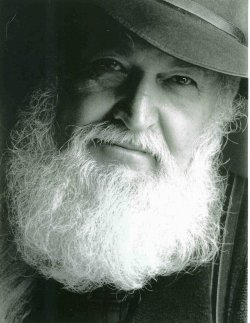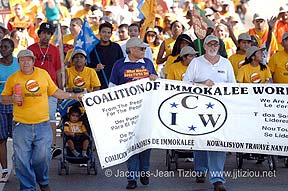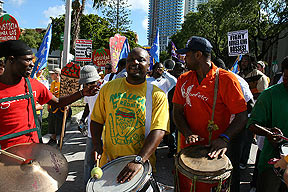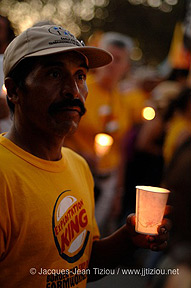On the dole
On the LeftLibertarian2 listserv, there’s been some discussion of a pseudo-libertarian argument that’s popular with certain border creeps, to the effect that the government should strictly limit immigration because otherwise too many immigrants, especially undocumented immigrants who often work off the books and don’t pay income tax, will show up to mooch off of hard-working Estadounidenses through the welfare state. This argument has a lot of problems, some of which I’ve discussed before (1, 2). For one thing, it’s empirically bogus. By law, even officially approved immigrants are ineligible for most federal welfare benefits, while local government-funded services that immigrants can avail themselves of, such as E.R. care, government police and firefighters, government schools, government roads, etc. are mainly funded out of state or local taxes that immigrants do pay, whether or not they file with the IRS — sales taxes, excise taxes, gasoline taxes, property taxes, etc. Perhaps more importantly, as Sheldon Richman and Niccol?@c3;b2; Adami pointed out on the list, the argument persists among vulgar libertarians and small-government conservative types for reasons that have nothing really to do with libertarian principle. As Niccol?@c3;b2; said:
The use of the
welfareargument, as I can see it is limited to use against other libertarians–like ourselves–who would otherwise look a little less kindly to the welfare state.The truth is, however, that if you watch the Bill O’Reilly’s of the world, they’re all complaining about the lack of
Americanessof the immigrants, not really about the tax evasion or the welfare.
As I mentioned on the list, the tax evasion
argument ought to be a complete non-starter with genuine libertarians. The fact that many independent migrants don’t pay taxes to support Leviathan is a point in their favor, not a point against them. As for the welfare state, they are welcome to milk it dry, as far as I’m concerned. The sooner the damn thing is on the brink of collapse, the better. Besides which, receipt of government benefits is not ipso facto a violation of anyone’s rights — it’s the funding that’s the problem, but illegal immigrants aren’t complicit in the existence of taxation — and insofar as they are able to receive some minimal pay-outs from the State, that may as well count as partial restitution for the daily threats, terror, and violence that the state and federal governments routinely inflict against the property and liberty of all undocumented immigrants.
For what it’s worth, I think that the focus on welfare is not actually quite as opportunistic as Niccol?@c3;b2; claims it is. I suspect that it has less to do with rhetorical outreach to small-government types, and more to do with a felt emotional need to believe that immigrants are really a bunch of ungrateful
layabouts. It’s the same basic racist dynamic that’s in play in the equivalent discussions by post-Jim Crow white conservatives about domestic welfare recipients.
 Sad news to report today.
Sad news to report today. 








